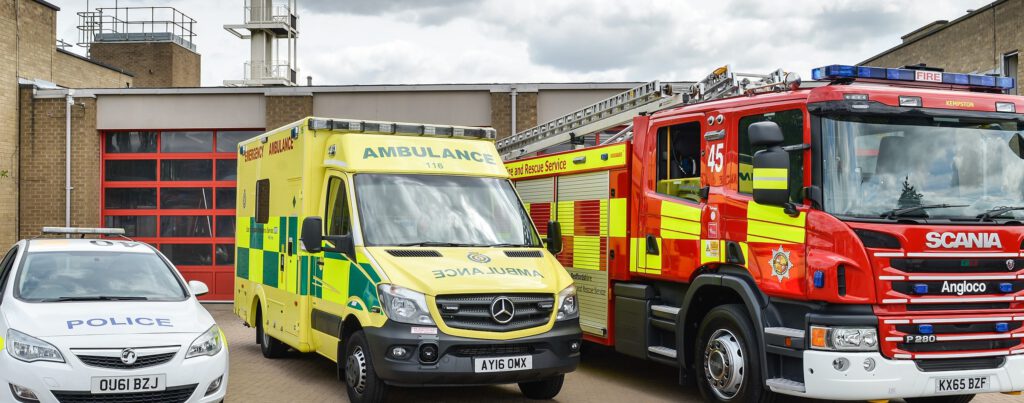Skills for Justice and Skills for Health launch Emergency Service Collaboration Survey to support workforce transformation

The demands on providing effective emergency services are significant. The delivery of Ambulance, Fire and Rescue and Police services is taking place alongside a backdrop of challenges created by public expectations, reduced resources, advances in technology and greater accountability.
With the combined pressures of the need to improve frontline services with fewer staff, many ‘blue-light’ employers across England and Wales are increasingly turning to collaborative means to ensure effective public services delivery.
COVID-19 has accelerated this collaboration even further. Throughout the pandemic UK emergency services have worked closer than ever together to protect the NHS and help save lives. Skills for Justice and Skills for Health have launched the ‘Emergency Service Collaboration Survey’ with the aim of understanding the extent of these efficiencies already established, and to build on these initiatives to enhance public safety for the future.
These blue-light collaborations take many forms, from complex partnerships working across large geographic boundaries to small locality focused projects. They are driven nationally through initiatives such as the Joint Emergency Services Interoperability Programme (JESIP) and the Emergency Services Collaboration Working Group (ESCWG) and often locally through strong and shared leadership models.
Jon Parry, Head of Research, Skills for Justice, Skills for Health, has previously conducted extensive research on emergency services collaboration and has co-written national reports for JESIP and the Home Office; the latter of which was cited in the Policing and Crime Act (2017).
Now, together with Professor Siddhartha Bandyopadhyay and Dr Helen Ackers, Birmingham University, he is revisiting this body of work in order to understand what progress has been made in embedding effective collaboration across Ambulance, Fire and Rescue and Police services, and what barriers and enablers still remain today.
Jon said: “This research is ambitious in its efforts to support current and future collaboration. It aims to ensure that it can continue its evolution to bring about a revolution in service delivery which completely transforms the workplace and the workforce; creates opportunities to reduce costs; maximises effectiveness; and increases public confidence.”
Have your say by taking part in this vital survey here today.
Share your ideas, initiatives, and experiences and those of your organisation involved in collaboration to contribute to this important piece of national research. The survey takes less than 10 minutes to complete and will remain open until August 31st, 2020.












Responses